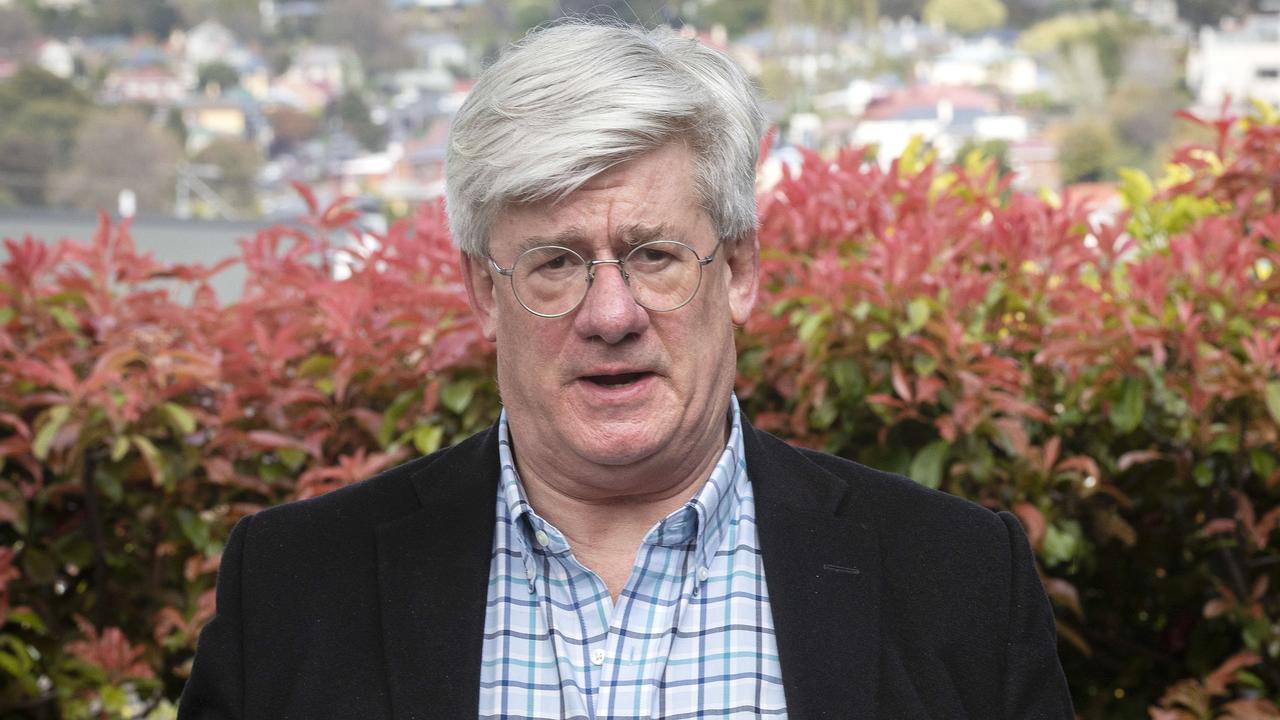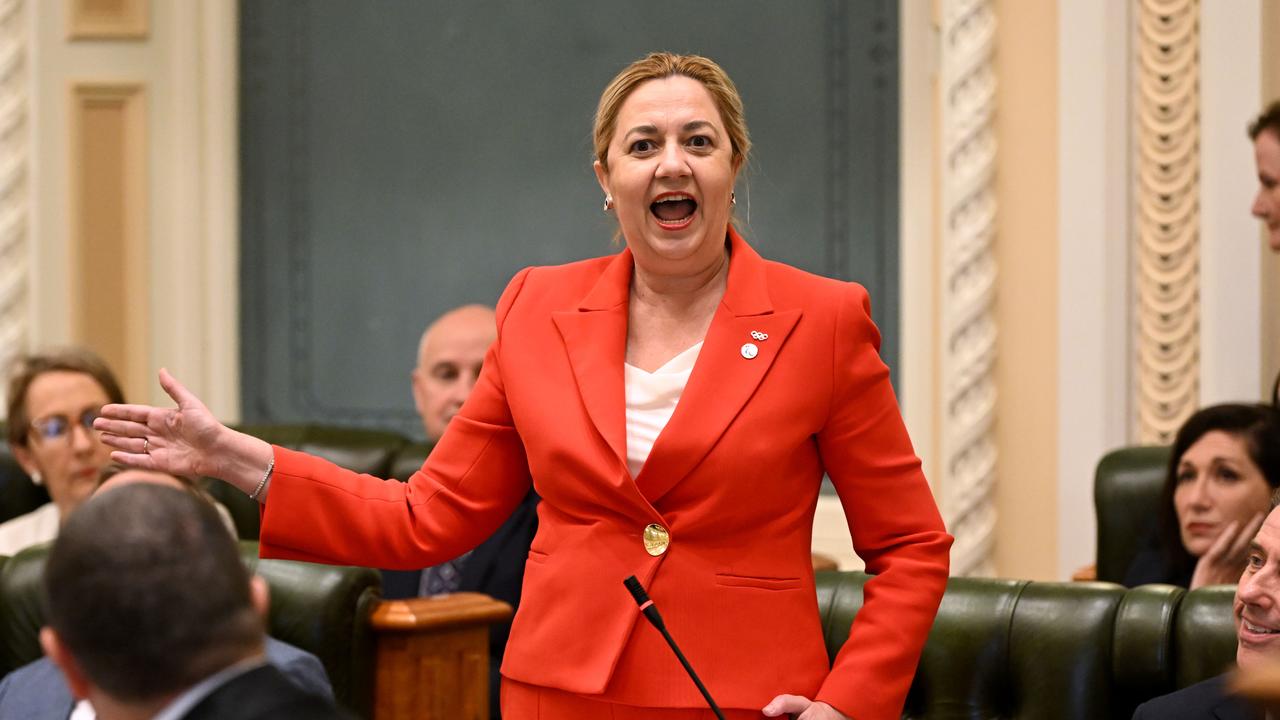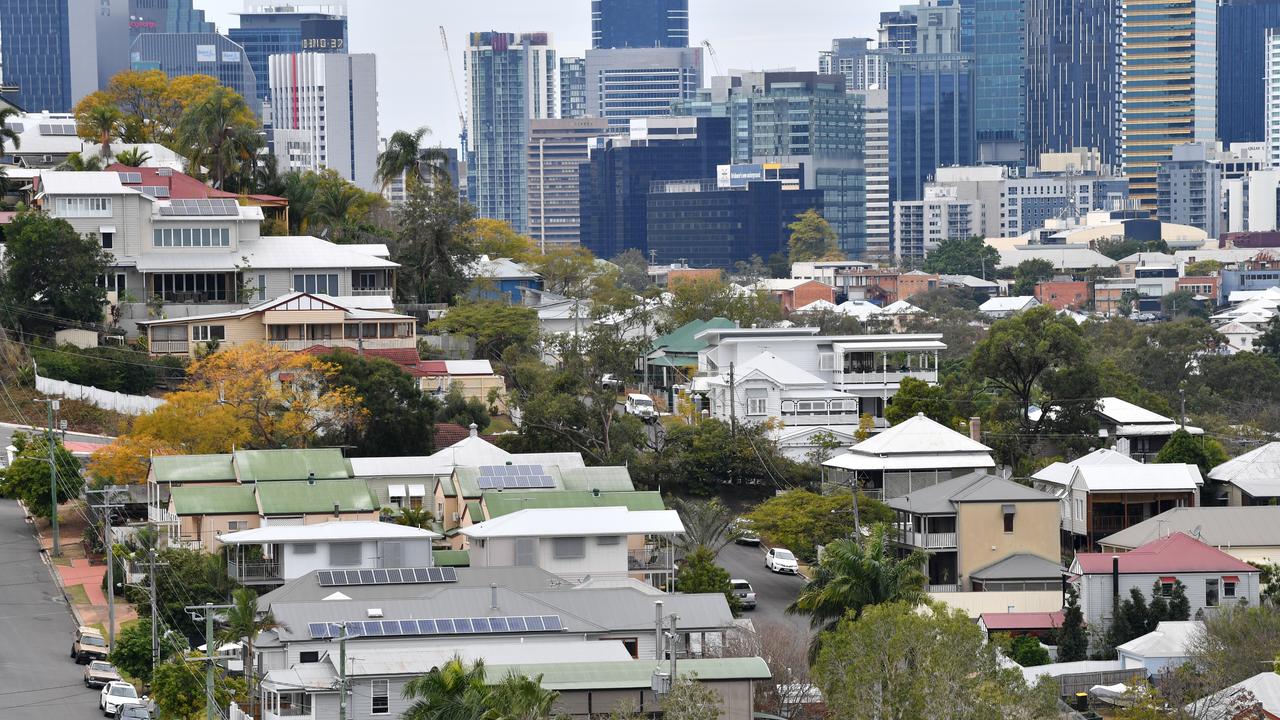Rental crisis Qld: Premier ‘seriously considering’ introducing rental price cap
Any move by the state government to introduce a price cap on private rentals amid Queensland’s housing crisis has been slammed as a ‘disaster’ in the making and a sign the state was ‘giving up’ on effective solutions. TAKE OUR POLL
QLD Politics
Don't miss out on the headlines from QLD Politics. Followed categories will be added to My News.
Annastacia Palaszczuk revealed the state government is “very seriously” considering introducing a price cap on private rentals after a new report laid bare the scale of Queensland’s housing crisis.
But the proposal has created an immediate backlash, with several economists saying a rent cap would be a ‘disaster’.
Ms Palaszczuk also confirmed the government is in discussions to buy thousands of homes that will lose funding from the winding back of a federal support scheme.
The Premier said she was “very concerned” about the crisis in Queensland after it was revealed 150,000 households were in critical housing stress and the rate of homelessness soared 22 per cent since 2017.
She said sharp increases in rents had squeezed Queensland families, leading to the government considering reforms to cap rental prices which she said will be discussed at the Housing Summit roundtable meeting next week.
“This is a big issue for families,” Ms Palaszczuk said. “They are constantly being faced with huge increases in rent and this is putting a lot of pressure on families.
“We’re looking very seriously at how a rental cap can be put in place.”
But critics say a rental cap would homelessness worse and was a sign the government is “giving up” economists have warned.
Economists Shane Oliver from AMP Capital, Brendan Coates of the Grattan Institute, and independent Saul Eslake said interfering in the market was bad policy and would make the housing situation worse.
“You could potentially make things better in the short term for existing renters, but the very act of making it easy for existing renters will make it worse for those that need housing,” Mr Coates said.
“A better policy in our view would be boosting the incomes of those struggling to keep a roof over their heads, by raising rent assistance by at least 40 per cent. That should be the number one priority right now.”
Ms Eslake, who has long supported removing tax privileges of property investors, said rental caps was a policy move indicating the “government is sort of giving up on the most effective solutions”.
“Or doesn’t believe it can implement them in a timely way, which is regrettable,” he said.
“You might legitimately ask … if the government’s fixing the price of rental housing or not allowing it go up by a specific percentage each quarter, or six months, or a year, why aren’t they doing that for electricity? Why just housing? Why not food?”

Mr Oliver said putting in place rental caps might sound good, but it would be “extremely unwise”.
“Every government in Australia - local, state and federal - should be foremost constantly devoted to finding ways to boost the supply of property,” he said.
“Not put in place short term fixes.
“Until we get a dedicated focus on boosting the supply of housing, whether it’s rental or owner-occupiers, is going to remain unaffordable … it is grossly unfair, if we just go for short term fixes all the time.”
Deputy Premier Steven Miles said a “range of options to provide greater certainty to tenants” would be put forward at meeting of the Housing Roundtable on March 28.
He said the state government was “acting across the full breadth of the housing market to increase supply and address housing affordability”.
Queensland Council of Social Services chief executive Aimee McVeigh welcomed the proposal to introduce rent caps, but insisted the top priority should be building more social and affordable homes.
“Enhancing housing supply must be the centrepiece of any strategy to end the housing crisis.
“Construction of more social and affordable housing should be the top agenda item at next week’s Housing Roundtable, followed by rental caps and the purchase of additional homes such as NRAS properties.”
Professor Hal Pawson, whose report released this week highlighted the extent of Queensland’s homeless danger zone, said his research’s recommendation “isn’t quite a price cap as such” but suggested a price limit in line with inflation would be a reasonable option.
“If the government is recognising the concern about unaffordable rent increases, well that’s an extremely welcome development,” he said.
“What we think is logical to consider at the moment is a restriction on the size of increases that landlords are allowed to introduce during a tenancy and the most obvious starting point for that would be CPI,” he said.

Professor Pawson said rents have outsripped inflation over the last two years, therefore a limit in line with CPI would be a “moderate sort of restriction”.
But he warned such a package would need to be partnered with a number of policies to strengthen renters’ powers to avoid issues such as tenants being booted when landlords want to hike rents, which could ultimately contribute to housing insecurity.
The professor said the fixed term nature of a tenancy agreement would allow landlords to end a lease and find a new renter and charge a higher fee.
“You can retain the ability to end that tenancy without any other grounds – the only other ground is the end of the fixed term,” Mr Pawson said.
The state government has also indicated is stood ready to buy thousands of homes that will lose funding from the winding back of the federal National Rental Affordability Scheme.
Before leaving office, the Morrison government began to wind back the National Rental Affordability Scheme (NRAS) but Ms Palaszczuk said she was in discussions with Treasurer Cameron Dick and Deputy Premier Steven Miles about acquiring those homes to continue support.
“There are over 5000 properties as part of that scheme – Queensland stands ready to purchase those houses,” Ms Palaszczuk said on Monday morning.
“What we do know is that we do need additional support from the federal government and where the federal government is stepping out, we are stepping up.”

Mr Miles said NRAS was a time-limited plan to subsidise rent for 5000 properties with the looming end of the support approaching in the next couple of years.
“So they will go into the general rental market – the only way to avoid that is by stepping in with support of social housing providers and purchasing them, ensuring that they remain within the social housing stock,” the Deputy Premier said.
“We are, as the premier said, discussing with those social housing providers exactly how we can do that.”
St Vincent de Paul Society Queensland chief executive Kevin Mercer said they had resorted to paying people’s car registrations.
“Sometimes the best response we can provide is to pay someone’s car registration so they can live and sleep in it ... to get them through as a temporary solution,” he said.
Mr Mercer said homeless services had been full for a long time.
“The designated specialist homeless services are designed to be short-term accommodation,” he said.
“We’ve got people that have been in our services for 18 months, almost two years, because there’s nowhere for them to go. And we’re not going to put them out on the street.”
DVConnect chief executive Beck O’Connor said domestic and family violence was the main reason women and children were leaving their homes.
“For people who have escaped violence, there simply aren’t enough safe, affordable and secure transitional and long term housing options particularly for families with large numbers of children,” Ms O’Connor said.
“There are very few options for children and young people who are themselves independently needing to flee from violent homes.”
Ms O’Connor said there was a threat of child safety intervention if they couldn’t find a home to live in.
“All of which often forces people to accept unsafe accommodation options, or are forced to have an option to return to a violent home,” she said.
“The housing crisis is so significant that even finding motels for motel vacancies on a daily basis for people fleeing in violence in many parts of the state is actually impossible.
“That’s because of whole families who are now living in motel rooms and caravans because they simply can’t find housing.
Ms O’Connor said they had supported more than 20,000 people who were experiencing domestic and family violence in the past six months with also more than 3000 requests for high security refuge and 5500 emergency nights of emergency accommodation in motels.
More Coverage
Read related topics:QLD housing crisis





